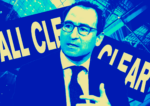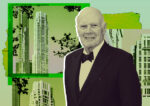Trending
As Mayoral candidates line up, real estate industry faces no easy choice
Even as a field of frontrunners emerges, developers and brokers have yet to pick a clear favorite

If this year’s mayoral race has shown the city’s real estate industry anything, it’s how much they’re going to miss the guy who currently fills the chair.
Mayor Rahm Emanuel wasn’t a perfect ally to real estate interests, but plenty have credited his aggressive courting of corporate relocations for one of the most explosive periods of Downtown growth in the city’s history. And his planning department has taken steps to push big projects to the finish line in the face of public opposition, most recently by giving Sterling Bay’s Lincoln Yards proposal a date with the Chicago Plan Commission before it officially earned the endorsement of the all-powerful local alderman.
No matter which of the 15 candidates squeak through the wild-west election on Feb. 26, property owners are unlikely to find a champion for their top-line causes: namely, tilting city ordinances in favor of landlords, softening affordable housing mandates and fighting the statewide legalization of rent control.
“This is a tough race to triage, because there’s just no perfect candidate for real estate in this environment,” said Brian Bernardoni, director of public policy and government affairs for the Chicago Association of Realtors. “In more and more of [their] policies, it seems like anyone with any money is becoming a target.”
Members say the association might eventually leverage National Association of Realtors funds for campaign donations, especially if no candidate wins more than 50 percent of votes Feb. 26 and the race goes to a runoff as expected. But for now, the leaders of multiple groups representing landlords, builders and brokers are keeping their powder dry while candidates continue to tease out policy proposals.
Among the roughly half-dozen candidates who have raised enough money to be considered viable, some have distinguished themselves as friendlier to business interests than others. But if campaign contribution records are any indication, the city’s real estate leaders are placing bets all over the board.
Toni Preckwinkle
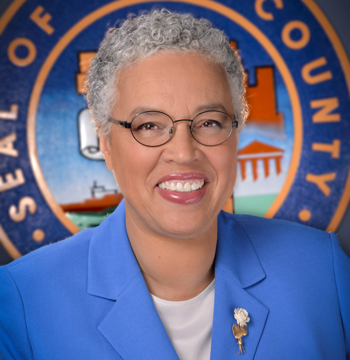
Toni Preckwinkle
The Cook County Board president and former alderman who co-founded the City Council’s Progressive Caucus has made little public effort to court business leaders, instead lining up support from public employee unions like the Chicago Teachers Union and Service Employees International Union.
While she has yet to release a full platform plank on housing or development, Preckwinkle has proposed a handful of policies meant to tighten the screws on wealthy property owners, including a proposal to boost the city’s real estate transfer tax on properties over $1 million. At the state level, she has championed Gov. J.B. Pritzker’s proposal to impose a graduated income tax and endorsed the effort to overturn the state’s ban on rent control.
Some veteran developers still resent Preckwinkle for her key role in crafting the city’s original Affordability Requirements Ordinance, which mandated the inclusion of affordable units in large multifamily developments across the city. The policy was created in 2003 and expanded in 2007, during her time in the council, and the program has only grown since.
Still, some notable real estate names have dug into their pockets to lift her campaign. Newsweb owner Fred Eychaner made a $100,000 New Year’s Eve gift to Preckwinkle’s campaign, three months after donating an even larger sum to Illinois House Speaker Mike Madigan’s election committee.
Preckwinkle also recorded a $25,000 donation from developer Peter Holsten, $12,500 from Cubs co-owner Laura Ricketts and $10,000 from architecture firm Antunovich Associates.
Susana Mendoza
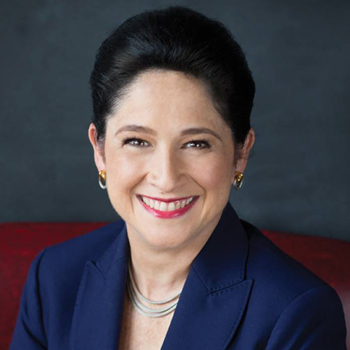
Susana Mendoza
The newly-re-elected state comptroller drew a mighty backlash from well-to-do city residents earlier this month when she floated a proposal for a graduated property tax system on homeowners, which would potentially levee higher assessments on the owners of more expensive properties. But Mendoza walked the idea back just two days later, a move that proved she remains “responsive to what the market is calling for” and left many business leaders open to her campaign, Bernardoni said.
Mendoza’s development platform is light on specifics, but it proposes an expansion of Emanuel’s Neighborhood Opportunity Fund, which allows developers to pay into a public fund in exchange for zoning allowances for taller buildings Downtown. Her “Future Now Plan” also endorses boosting new development in former industrial areas with a “fee structure to support infrastructure investments,” and it floats an unspecified program to “take advantage” of investments being lined up for Opportunity Zones.
During a public forum at Whitney Young Magnet High School last week, Mendoza said rent control could “make perfect sense” in some gentrifying parts of the city, but could have “very negative, unintended consequences” for landlords in poorer neighborhoods.
Like Preckwinkle, Mendoza has pulled the bulk of her fundraising from labor groups. But she also took $100,000 from General Iron Industries owner Howard Labkon, $10,000 from Magellan Development Group president David Carlins and $10,000 from Gold Coast developer David Pisor, records show.
Laura Ricketts also donated $12,500 to Mendoza, the same sum she pumped into Preckwinkle’s campaign.
Bill Daley
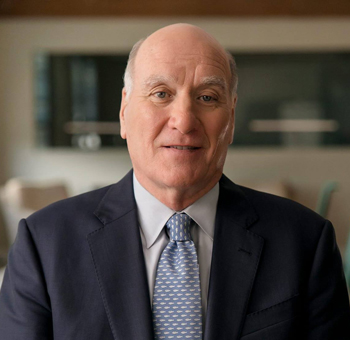
Bill Daley
As of Dec. 31, more than a dozen businessmen and family trusts signed six-figure checks to bring back the family dynasty that ran Chicago for more than four decades. One of those businessmen was Daley himself, who kicked off his campaign with a $500,000 head-start from his own pocket.
The platform of the former investment banker, who also served stints as White House chief of staff under Barack Obama and U.S. Commerce Secretary under Bill Clinton, exemplifies the kind of language builders like to hear. His website proposes to “work closely with developers using state and federal tax credits” to jumpstart the construction of tens of thousands of affordable units.
His website mentions enforcement of the Affordable Requirements Ordinance, but otherwise offers carrots, not sticks, for multifamily developers. “Tax credits, opportunity zone funding, the Neighborhood Opportunity Fund, affordable housing dollars and tax-increment financing will all be aligned for developers and investors who invest in struggling Chicago communities,” his “Affordable Neighborhoods” page reads.
Campaign records show Daley pulled in a $200,000 donation from an LLC controlled by Thomas Meador, the former head of the 1980s-era real estate giant Balcor. Donors also include Magellan co-CEO Joel Carlins, who split with his son David by signing over $20,000 to Daley, and Planned Property Management CEO Robert Buford, who kicked in $10,000.
Gery Chico
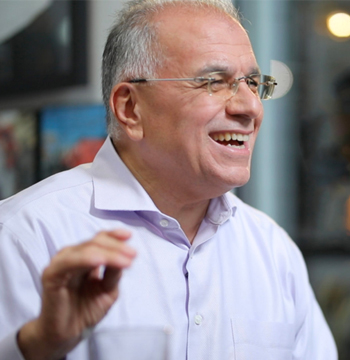
Gery Chico
Gery Chico is a fixture in Chicago politics, having served as chief of staff to Mayor Richard M. Daley and having run against Emanuel to succeed Daley in 2011. But it’s his history running a private law firm that’s given him cred with real estate pros.
Chico & Nunes has spent more than a decade representing real estate groups with business before the city, giving Chico a “better understanding of the role of real estate and development in Chicago’s economy” than most candidates, according to Paul Colgan, a lobbyist with the Homebuilders Association of Greater Chicago.
Developers also noticed Chico is one of the only candidates running in unequivocal opposition to rent control. He reaffirmed that stance at last week’s forum, saying, “We have to be careful that we don’t squeeze landlords so much that they pull up stakes and leave.”
Chico’s bare-bones public platform includes no specific proposals for construction or land use, aside from “utilizing surplus TIF funds” and “selling city-owned vacant land.” He has proposed freezing property taxes, but he told the Chicago Sun-Times that he favors increasing the tax on real estate transfers.
Chico has pulled at least $100,000 in donations from construction trade groups, campaign records show. Donations also include more than $40,000 from various employees of affiliates of CBRE, more than $35,000 from developer John Buck, $25,000 from Joseph Santucci of Avalon Realty Associates and $21,500 from Daniel Walsh of Walsh Construction.
Paul Vallas
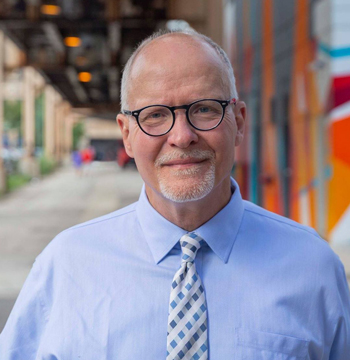
Paul Vallas
The former chief of Chicago Public Schools caught the attention of some real estate insiders with his encyclopedic policy platform, which delves into the weeds of property tax rates and home construction. He’s also the only candidate who has published a detailed plan to attack the city’s pension crisis. Like Chico, he has proposed freezing property taxes.
His signature affordable housing proposal would amend the city code to allow landlords to refashion vacant retail spaces into garden-level apartments. The “heavy incentives” being given to developers to build affordable units are “providing a fraction” of the resources property owners need to create more affordable living spaces, he said Thursday.
Vallas also earned a tepid endorsement from former Gov. Bruce Rauner, who closely aligned himself with real estate leaders, and who said in an interview this month Vallas was “probably” the best choice for mayor. But that’s a dubious honor in a city that voted against Rauner’s re-election by 66 points last year.
And potential backers are also paying attention to Vallas’ relatively anemic fundraising numbers, which prevent him being able to claim an unchallenged spot in the top tier of candidates. Where Preckwinkle, Mendoza Daley and Chico all boast well over $1 million on hand, Vallas has just over $111,000 in his campaign account. Still, he has counted support from some backers in the real estate industry, scoring a $50,000 check from Sauk Development and $12,500 from First National Development.


